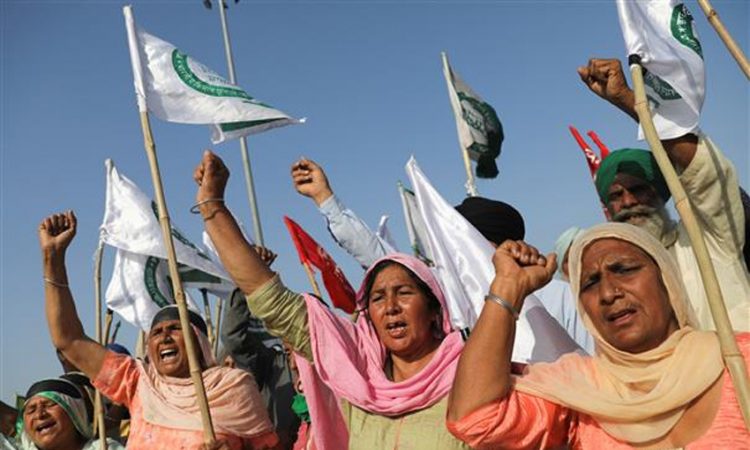
The Samyukt Kisan Morcha (SKM) has vehemently opposed the draft National Policy Framework on Agricultural Marketing (NPFAM), describing it as “more dangerous” than the three controversial farm laws repealed following the historic farmers’ protest.
In a statement, the SKM accused the BJP-led Union government of undermining federalism and state rights through the proposed framework, warning that it would harm farmers, agricultural workers, small producers, and traders.
The absence of guarantees for a Minimum Support Price (MSP) and minimum wages for workers has heightened apprehensions among stakeholders.
To intensify their opposition, the SKM announced Kisan Mahapanchayats in Tohana, Haryana, on January 4, and Moga, Punjab, on January 9, where resolutions demanding the repeal of the NPFAM would be passed, alongside plans for widespread mass struggles.
Punjab Chief Minister Bhagwant Mann has also criticised the draft policy, alleging it seeks to reintroduce the repealed farm laws under a different guise.
Mann labelled the framework a regressive move and called for its immediate withdrawal.
The SKM noted that the framework ignores the recommendations of the National Commission on Farmers (NCF), chaired by the late M.S. Swaminathan, which advocated for a remunerative MSP to support farmers.
It warned that the proposed policy seeks to centralise agricultural governance, infringing on state jurisdiction over agriculture, land, and markets—subjects that fall under the state list in the Constitution.
While the draft proposes integrating private and public sectors using advanced technologies like blockchain, artificial intelligence, and digital public infrastructure, the SKM argued that deregulation would allow corporate agribusinesses to dominate the agricultural value chain, marginalising farmers and small traders.
The SKM has urged all political parties to clarify their stance on the NPFAM and called for a united effort to safeguard farmers’ rights and promote sustainable agricultural practices.




